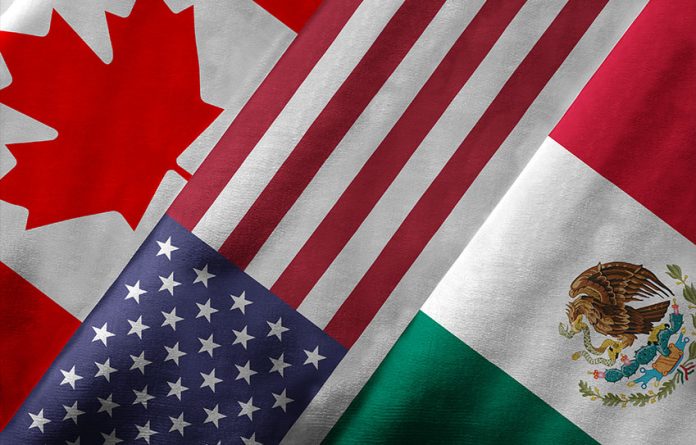Mexico, the United States and Canada are making progress in their attempt to reach a resolution over a dispute stemming from the Mexican government’s nationalistic energy policies.
The U.S. Trade Representative in July requested dispute settlement consultations with Mexico under the United States-Mexico-Canada Agreement (USMCA). Canada promptly did the same, saying that it agreed with the U.S. that Mexico’s energy policies were inconsistent with its USMCA obligations.
Mexican and U.S. officials who spoke with the news agency Reuters on the condition of anonymity said Monday that progress in their discussions meant they would continue beyond October 3 — the date on which a dispute panel could have been requested to hear the case.
The USMCA allows a claim to be taken to a dispute panel 75 days after consultations begin. Mexico risks exposure to punitive tariffs on its exports if a dispute panel is convened and rules in favor of one or both of its North American trade partners.
México continuará con los esfuerzos conjuntos para llegar a una solución mutuamente satisfactoria en el tema de las Consultas al amparo del #TMEC. pic.twitter.com/K4U5098fNa
— Economía México (@SE_mx) October 3, 2022
While a dispute panel could still be established, Mexico’s Economy Ministry said on Twitter Monday that the “joint efforts to reach a mutually satisfactory solution” — the ongoing talks — will continue.
“Mexico, the United States and Canada have maintained a productive dialogue since the United States and Canada requested consultations,” it said. “… We share the wish of our partners to continue progressing through dialogue.”
Both the United States and Canada are unhappy about delays faced by private energy sector companies to receive permits. They also disagree with other energy sector policies and laws that favor Mexico’s state-owned energy firms, including the Electricity Industry Law, which gives power generated by the Federal Electricity Commission (CFE) priority on the national grid over that produced by private and renewable energy companies.
However, tensions have eased in recent weeks as Mexican courts suspended some contentious rules, and on signs that Mexican regulators have begun to address backlogs on permits, Reuters reported, citing industry officials and sources.
Francisco de Rosenzweig, a former deputy trade minister, told the news agency that he believes that the Mexican government “has sought to deal with the requests from the U.S. and Canadian governments with a view to a solution that avoids international arbitration.”
Reuters said its sources cited upcoming midterm elections in the United States, inflation concerns and the probability that Mexico would lose arbitration as reasons why neither side wants to escalate the trade dispute by requesting a panel.
In a separate gas pipeline dispute, the CFE lost an international arbitration case to a Canadian company and had to pay compensation of about US $85 million, Reuters reported Monday.
Regarding the energy dispute, a Mexican government source said that U.S. officials warned that pressure on Mexico will increase if substantial progress toward resolution isn’t made.
Rosanety Barrios, an energy analyst and former Energy Ministry official, said there are a number of unresolved issues even though Mexican regulators have attempted to show their willingness to be more flexible.
She suggested that resolution won’t come anytime soon, telling Reuters that Mexico and the U.S. could “kick the can down the road until the next [Mexican] government” takes office. A new Mexican president will be sworn in in late 2024, while the four-year term of the next U.S. president will commence in January 2025.
With reports from Reuters
